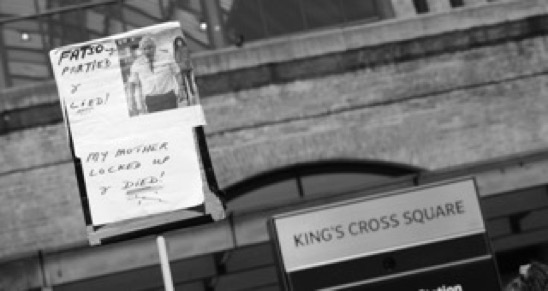Learning to love the Judases
14.06.2022 20:08 Martin Geddes

Betrayal is an opportunity to master forgiveness
By Martin Geddes on June 10, 2022
Many of us are quietly watching in horror as the statistics for mortality and morbidity reveal the effects of the gene therapy genocide on those we love. The abuse of trust by those in power and authority is the signature theme of this era, and the collective grief has only just begun. The pain of betrayal runs through our families and communities, as so many have shown allegiance to prideful lies and fake virtue.
The last few weeks have been heavy going. There’s much to be pleased about, notably that this is the most “awake” moment in human history to the manipulations and deceit of our hidden rulers. On the other hand, there is a terrible sadness at having to witness the violence and fraud being actively perpetrated, especially when children are being targeted for brainwashing, self-harm, maiming, sterilisation, and murder.
Many of us are feeling a disabling tension inside. On the one hand there is... never give up... fight for the children... I have come so far and we are so near... I have put the work in so enjoy the upside... I was made for this... it is a privilege to experience and participate... I can help so many people... I know this ends well... the best is yet to come. On the other hand there is... I am traumatised... I feel hurt by those close to me... the dues of Babylon are still arriving... the burden of injustice is so heavy... why are the honest made to hurt so much... everyday tasks are near impossible efforts... will this waiting ever end... I just want the pain to stop.
My resolution has been to take things a day at a time. When I fall over, I rest a while, recover my strength, then carry on. Progress is made when I find the middle way between feeling helpless or hopeless, and the other extreme of Atlas Syndrome ("I will save the world — solo"). Yet there is one specific aspect — forgiveness — that I have come to understand in much more depth from tracing back the source of my own distress and sluggishness.
This is a cultural and spiritual fight for truth and justice — indeed, to define what those words mean. Every betrayal or wrongdoing we endure along the way is a hurt, and these wounds accumulate over time. What I found relatively easy to do a few years ago has now become burdensome and exhausting. That is OK — it is a real (albeit unconventional) war with a real enemy launching real attacks with real effects.
Many a night has been passed with me chewed up with anger and resentment at those who have treated me badly. There are so many Judas characters in my personal play it is hard to know where to begin itemising them! The bitterness invites self-pity, which in turn becomes a disabling force that sucks away my energy to take action. The standard advice is to forgive, but what does that mean and how to go about it?
What I am learning is that to fight for what is just and right is a cycle. In inevitably involves taking hits due to the misdeeds of others. The cycle can be one that de-escalates and leads to peace, or it can be one where fury and vengeance fuel yet more conflict. Forgiveness is the process by which these bad acts no longer have power over us, and we are able to have choices over how we respond.
It doesn’t mean condoning the acts, or pretending they did not happen, or letting the perpetrator have no consequences. It just makes your own life no longer contingent on any kind of acknowledgement, apology, or restitution by the wrongdoer. In other words, forgiveness is a gift to yourself of freedom from the harm, which cannot be changed. Thus as a freedom fighter in a spiritual war, forgiveness is a figural capability.
Herein lies the paradox: I have come to be grateful those who betray me, for without them I would never have had to learn this peacemaking skill. None of these breaches of trust or the golden rule have destroyed me; there is no ruin in having taken the class in forgiveness. I would have been mired in a wooly and burdensome “let’s be nice to each other” version of forgiveness that avoided the need to correct behaviour or sever ties. Instead I now see how forgiveness is a gift to myself, and nobody else.
What makes it easier is a Biblical “forgive them for they know not what they do”. Everyone is doing the best they can, all the time, no matter how appalling awful. We want to make it all about us and our hurt, but we don’t pay attention to what is acting upon the other, and how they are playing our old wounds of their own by inflicting hurt on others. We may have been operationally wronged in the world, but we cannot impute the level of intent that we might imagine.
The Judases in our life give us the “antifragile” property: the betrayals we can recover from (even if personal return from the dead is a big ask!) always make us stronger in the end, and wiser to the ways of the world. Without the small harms and hurts, and mastery of forgiveness, we would be destroyed by the first sizeable double-crossing we encountered. As such, I am learning to love my own Judases, however uncomfortable that may be.
Source
